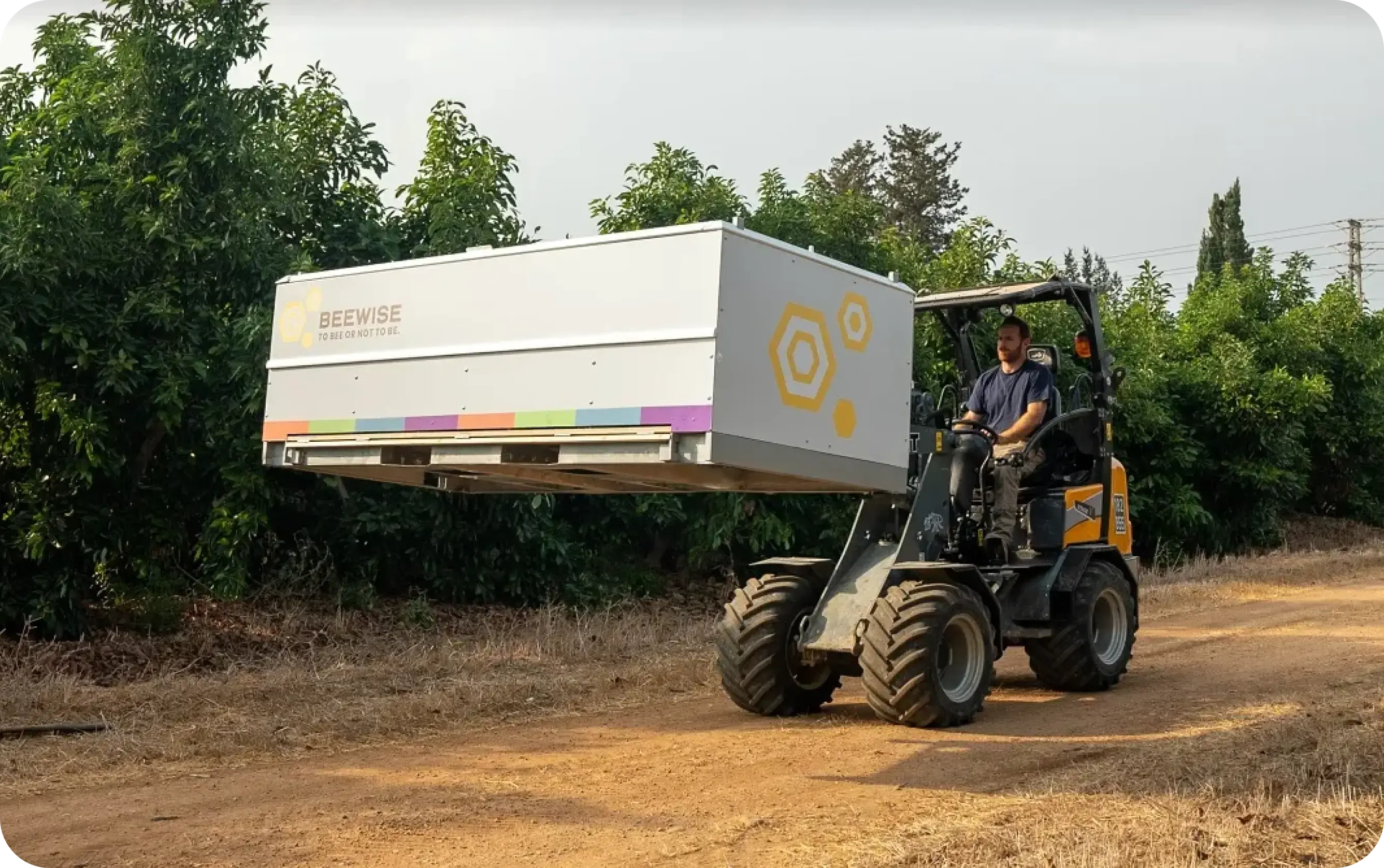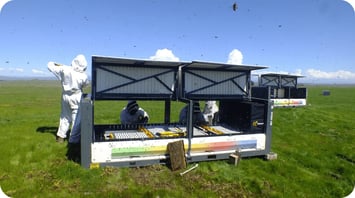CEO Statement
Dear Beewise Community,
As I reflect back on 2023, I am grateful for our growth, including our largest pollination season yet. I celebrate the positive impact we’ve made on bee health as a result—for every dollar we make, we save 12 bees. However, last year, we also felt an increased urgency to protect these vital pollinators. The threats bees face have only intensified and it’s clear to us that the only way Beewise can succeed is at scale.
Our second annual Impact Report covers our activity from January through December of 2023, and aligns with industry-specific standards of the Sustainability Accounting Standards Board (SASB) for Agricultural Products and Software & IT Services. We hope this report engages the food and environmental sustainability community in a dialogue about the critical role AI paired with precision robotics will have in saving bees, a species responsible for pollinating the majority of what we eat.
I want to begin our report with a story about this mighty insect: as bees fly, they collide with microscopic particles in the air, and as a result of this friction, their bodies build up a positive charge. Meanwhile, flowers’ proximity to the ground tends to give them a negative charge. When the positively charged bee arrives at the negatively charged flower, sparks don’t fly, but pollen does. What this tells us is that while we tend to think of pollinators as “part” of nature, in reality they are the embodiment of Mother Nature; a catalyst in a complex, dynamic system. Many species on the planet, including butterflies, birds, bats, and even rats, can, and do pollinate, but bees alone have evolved over the course of 150 million years to be the world’s most effective generalist pollinator: they pollinate the majority of the fruit, vegetables, seeds, and nuts that feed eight billion people.
Humans have allowed bee colony collapse rates to climb from single digits to 48% in less than 50 years. How dare we undo in decades that which took eons to perfect? We all must take notice. Colony collapse is not only a problem for beekeepers who manage bees at scale. It is not only a problem for crop growers who provide produce as part of the global food supply. It is a problem for every being that eats and breathes.
Beewise exists to give bees a fighting chance in the face of modern stressors, because as we see it, our future is clear: “To bee, or not to be.”
Saar Safra
.jpg?width=452&height=302&name=DSC00415%20(1).jpg)
Report Highlights



Read the Full Report
You can view the full report at beewise.ag/impact. If you are a grower interested in working with Beewise on pollination, a commercial beekeeper interested in using BeeHomes in your operations, or a sustainability professional interested in partnering on impact-related initiatives, please get in touch.
.jpg?width=50&name=Saar%20Safra-%20CEO%20%26%20Co-Founder.headshot%20(2).jpg)

.jpg?width=355&height=199&name=DSC00415%20(1).jpg)


.png?width=355&height=199&name=Copy%20of%20The%20Evolution%20of%20Pollination%20(1).png)
Leave comment